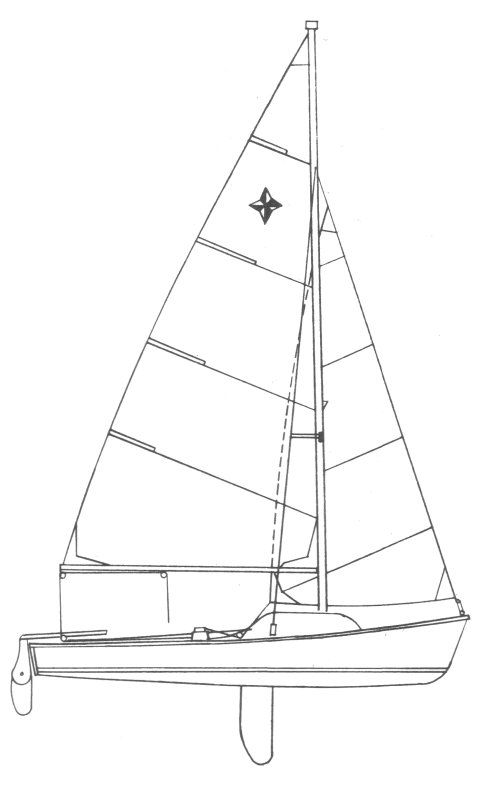The Discoverer 18 emerges as a compact and spirited monohull, designed for sailors seeking exciting performance in a smaller package. Conceived by naval architect Joseph V. Puccia, this ultralight vessel was brought to life by American Fiberglass Corporation, a builder renowned for democratizing sailing through accessible and fun boats. Primarily recognized as a high-performing sailing dinghy best suited for racing, the Discoverer 18 represents a nimble entry into the world of fiberglass sailing.
Discoverer 18 Information, Review, Specs

- Make
- Model
- Number Built
- Production Year(s)
- 1966 - ??
History and Design
The production of the Discoverer 18 commenced in 1966, a period when fiberglass construction was rapidly becoming the standard in marine manufacturing, enabling mass production and greater accessibility for recreational sailors. American Fiberglass Corporation, under the visionary partnership of designer Art Javes and financier Billy Mills, had already established its reputation for creating engaging and affordable sailboats like the Aqua Cat catamaran. This ethos of delivering exciting performance at a reasonable cost undoubtedly influenced the development of the Discoverer 18. The designer, Joseph V. Puccia, aimed for a "speedy hull design," aligning with the builder's commitment to dynamic sailing experiences. With a length overall of 17.58 feet and a waterline length of 16.33 feet, the Discoverer 18 embraced the lightweight, durable qualities of solid fiberglass for both its hull and deck, a common and effective construction method of the era.
Sailing Performance and Handling
The Discoverer 18 is characterized by its ultralight displacement of just 650 pounds and a generous reported sail area of 165 square feet, contributing to its designation as a very high performer. Designed with a fractional sloop rig and a centerboard keel, it boasts a maximum draft of 4.5 feet when the board is down, which can be reduced to a minimal 0.75 feet, offering versatility for shallow water sailing and easy trailering. This design suggests a boat that is both responsive and capable of finding speed quickly. Anecdotal descriptions suggest the Discoverer 18 is "stable/stiff" despite its light weight, indicating a design that can stand up to wind, making it well-suited for its intended role as a racing boat. Its hull speed is calculated at 5.41 knots, indicative of its potential for spirited sailing.
Accommodations and Layout
Given its compact size, with a length overall of just under 18 feet, the Discoverer 18's accommodations are minimal, characteristic of a racing dinghy or a simple day sailer. The design does not feature standing headroom or extensive interior living spaces. Instead, any interior volume would likely be dedicated to limited storage for sailing gear or personal effects, possibly within a cuddy cabin arrangement. The primary focus of the Discoverer 18's layout is on the cockpit and deck, maximizing space for efficient sail handling and crew movement during racing or day sailing.
Measurements
Construction & Hull
- Construction Material
- Fiberglass (Solid)
- Hull Type
- Monohull Sailboat
- Keel Type
- Centerboard
- Rudder
- 1x —
- Ballast
- -
- Displacement
- 650 lbs
- Water Capacity
- -
- Fuel Capacity
- -
Engine
- Engine Make
- —
- Engine Model
- —
- Engine Type
- —
- Engine HP
- —
- Engine Count
- 1
- Drive Type
- —
- Fuel Type
- —
Rig & Sails
- Rig Type
- Fractional Sloop
- P (Main Luff)
- -
- E (Main Foot)
- -
- I (Foretriangle Height)
- -
- J (Foretriangle Base)
- -
- Forestay Length (est)
- -
- Main Sail Area
- -
- Foretriangle Sail Area
- -
- Total Sail Area (Reported)
- 165 sqft
- Total Sail Area (Calc)
- -
Dimensions
- LOA
- 17.58 ft
- LWL
- 16.33 ft
- Beam
- 6.25 ft
- Draft
- 4.5 ft
- Max Headroom
- -
- Air Draft
- -
Calculations
- Hull Speed
- 5.41 kn
- Pounds per Inch Immersion
- 364.68